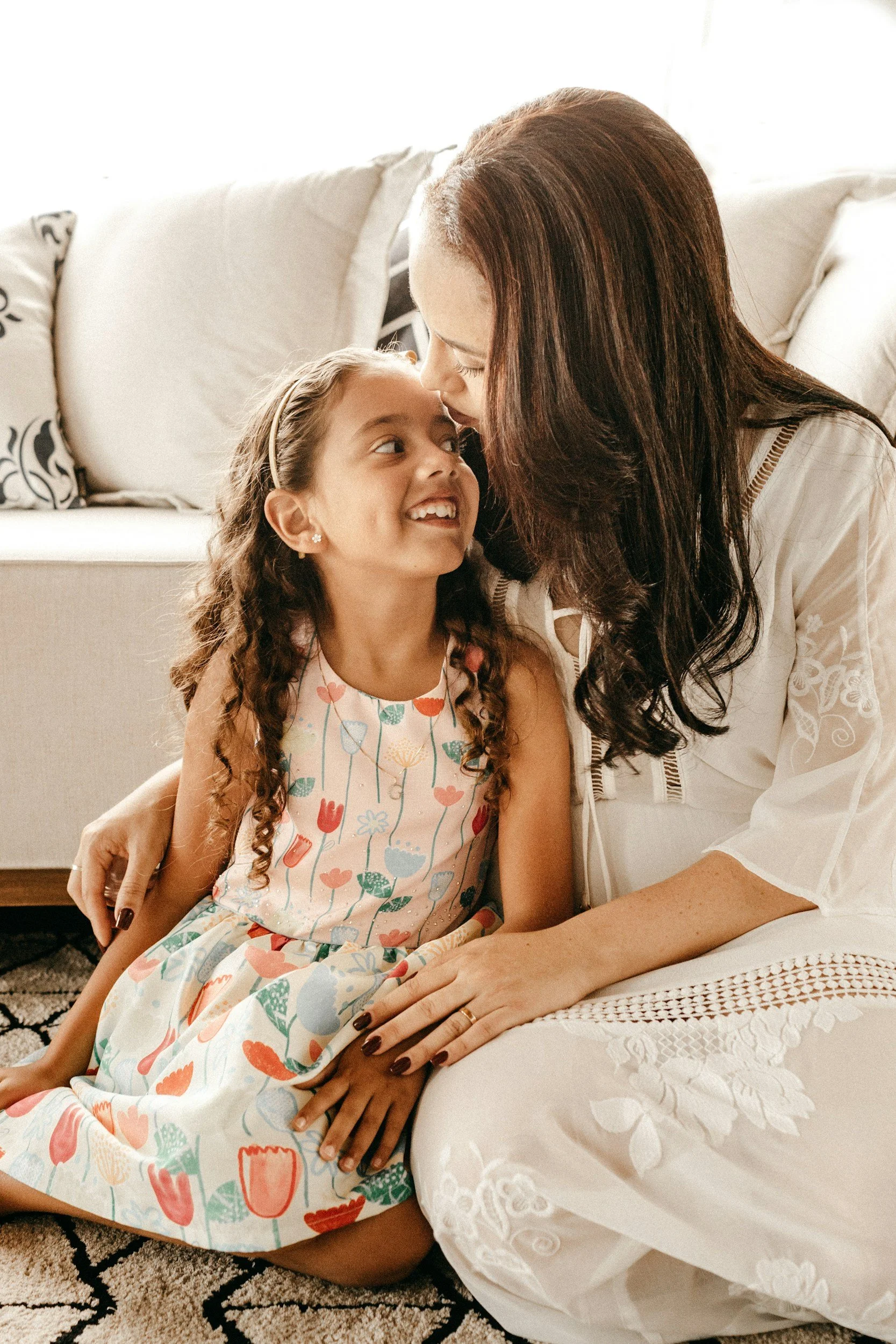You Were Always Good Inside: Healing from the "Good Girl" Identity
"I don't even know what I need anymore — I'm just so used to taking care of everyone else."
"If I say no, I feel selfish. But if I say yes, I feel invisible."
"I keep it all together for everyone... and then wonder why I'm falling apart inside."
If these words feel familiar, you’re not alone.
So many women live under the heavy weight of the "Good Girl" identity — a legacy that often begins in childhood and quietly shapes our adult lives in ways we barely notice until exhaustion or resentment finally breaks the surface.
Dr. Becky Kennedy, clinical psychologist and author of Good Inside, offers a powerful lens through which to understand this pattern: the idea that many women were taught early on that their "goodness" was measured by how easy, helpful, selfless, and undemanding they could be.
The "Good Girl" Identity: When Being Good Comes at a Cost
From a young age, girls are often praised for being:
Pleasant ("She's so sweet and easygoing.")
Helpful ("She’s always taking care of others.")
Quiet and polite ("She never causes any trouble.")
Selfless ("She puts everyone else first.")
At first glance, these traits seem admirable — even lovable.
But underneath them lies a powerful message:
Be less yourself so you can be more acceptable to others.
To survive — to be loved, to stay connected — many of us learned to shrink our needs, silence our anger, and ignore the quiet voice inside that whispered, "I need something, too."
How It Follows Us Into Adulthood
Fast-forward 20 or 30 years, and it often sounds like this:
"I'm the one everyone counts on, but no one asks how I'm doing."
"I can feel when someone’s upset across the room — and it’s my automatic job to fix it."
"If someone else needs something, I drop everything — even if I'm already drowning."
Women who internalized the "Good Girl" identity often:
Feel guilty for prioritizing themselves
Become hypersensitive to others' moods and needs
Overfunction in their relationships, workplaces, and families
Lose touch with their own desires, deferring to others
Experience burnout, resentment, and depression — quietly, while still appearing "together" on the outside
And perhaps most painfully:
They feel unseen even when they’re constantly giving.
The Hidden Cost of Being Good
Dr. Becky reminds us:
"When kids are overly focused on being good, they disconnect from themselves."
And that disconnection doesn’t magically heal in adulthood.
It morphs into self-doubt. People-pleasing. Chronic exhaustion.
It creates lives that look full — but feel hollow.
Self-sacrifice can feel like love, but when it’s the only form of connection we know, it becomes a trap.
Rewriting the Script: What If You Were Already Good Inside?
Dr. Becky’s core message is a lifeline:
You are good inside — not because of what you do for others, but simply because you exist.
Healing from the "Good Girl" identity isn’t about becoming harder or colder.
It’s about remembering that your needs, your voice, your emotions — they matter.
It starts with small acts of reclamation:
Noticing when you're acting out of obligation instead of true desire
Naming your needs — even if you don't meet them right away
Practicing boundaries without apologizing
Letting go of guilt when you aren't everything to everyone
Tending to your inner child — the part of you that learned early on to disappear to stay loved
"It still feels scary to say no," one woman shared with me, "but now when I do, I feel like I'm finally telling myself the truth."
A Personal Reflection: How I'm Parenting Differently — and Reparenting Myself
Recognizing the impact of the "Good Girl" identity in my own life has opened a profound opportunity:
to raise my daughter differently — and to heal parts of myself along the way.
I’m committed to encouraging her to express all her feelings, not just the "easy" ones.
I validate her needs, even when they feel inconvenient.
I teach her that setting a boundary isn’t rude — it’s respectful, to herself and others.
In doing so, I'm also quietly offering that same compassion to the younger version of myself — the one who once believed she had to earn love by staying small, quiet, and good.
Every time I honor my daughter’s authentic voice, I am honoring mine too.
And that, perhaps, is the real gift of healing:
We free the generations that come after us — and the generations that still live within us.
Want to Explore This More?
Dr. Becky’s podcast Good Inside and her book of the same name offer deep, powerful insights into how early narratives shape our adult behavior — and how we can gently, lovingly break free.
Therapy can be a transformative space to unpack the "Good Girl" conditioning, reconnect with your true needs, and begin living in a way that’s not rooted in self-sacrifice, but in self-worth.
You don't have to do more to be good enough.
You already are.

